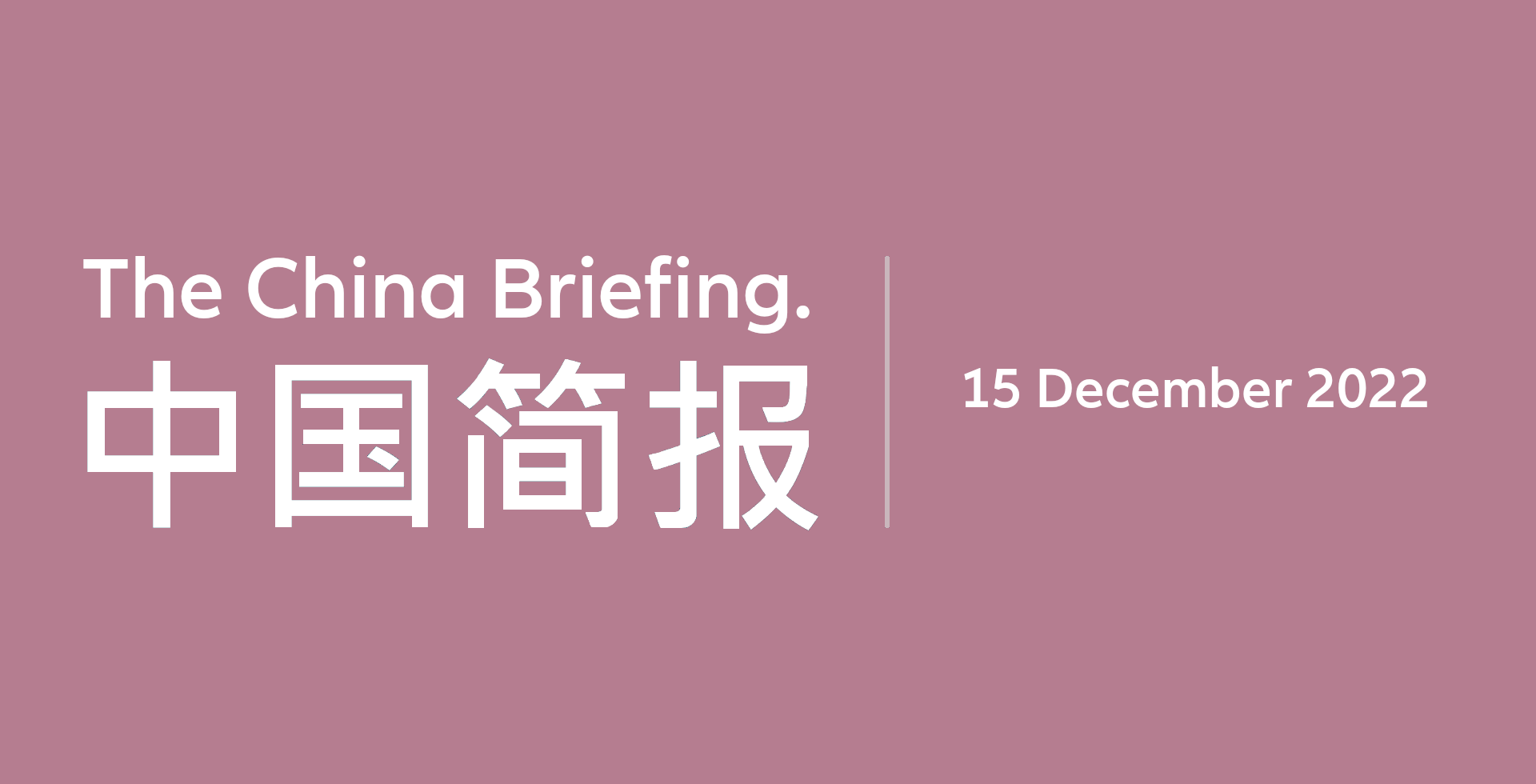The China Briefing
Lying flat while tackling Covid

Please find below our latest thoughts on China:
- The closest phrase to “the great resignation” in Chinese is probably “tang ping” (躺平), which literally means “lying flat”.
- The phrase became popular last year, initially as a reference to younger Chinese preferring to opt out of the culture of long, arduous work hours – especially the “996” system: 9am to 9pm, six days a week.
- “Tang ping” has subsequently made its way into everyday conversation – and in recent days it has even been repurposed as a label for China’s modified approach to tackling Covid, and the pivot towards a more “lying flat” attitude to living with the pandemic.
- Less than a month after the government started to talk about “optimising” its policies, China has rapidly dismantled much of its zero-Covid regime. The priority has shifted from the longstanding goal of stamping out virus transmission to managing the repercussions.
- The immediate result of these changes has been a much faster spread of the virus. Although official case numbers are coming down, this is because many people are now isolating at home without notifying authorities of their cases.
Main road in Beijing

Source: Allianz Global Investors as at December 13, 2022
- Indeed, it is evident from contacts around mainland China that Covid cases are surging surprisingly fast. As a sign of the times, there were 400 million clicks on the topic “what to do if you tested positive” on Weibo (China’s equivalent of Twitter) on 6 December.1
- The upshot will almost certainly be a strain on the healthcare system. Around 25 million people over the age of 60 have not received a single dose of vaccine, while over 80 million have not had a booster.2
- Although China compares favourably in terms of total number of hospital beds, the country is limited in the number of intensive care beds (only around five per 100,000 people compared with over 25 in Germany and the US).3
- There is some risk, therefore, that the hospital system could be in danger of getting overwhelmed. Nonetheless it seems unlikely that the government would look to reimpose the deeply unpopular and potentially destabilising lockdowns.
- In the near term, with many Chinese households worried about infection, people are likely to act cautiously and stay at home. Customer traffic at shopping malls and restaurants is still much lower than normal. A major five-lane road running through the heart of Beijing – usually jammed with traffic – was almost deserted one afternoon this week.
- But looking beyond this, after three years of depressed sentiment, the end of Covid policies should trigger significant pent-up consumer demand.
- While Chinese households did not benefit from large state handouts in the same way as many Western counterparts, nonetheless savings rates have still increased during the Covid years. And notably this year in China there has been a steep fall in interest and mortgage rates.
- Indeed, travel platforms such as Trip.com and Qunar have reported that searches for air tickets to tourist hot spots jumped as much as seven times after the first news of the looser Covid rules was announced,4 with many people looking to travel around the Lunar New Year holiday in January.
- Another trigger for a rebound in confidence and consumption will be signs of stabilisation in the property sector. Recent news here has also been more encouraging.
- There has been a clear shift towards more direct government support of developers, with policies including extension of repayment periods, additional bank lending, resumption of equity market financing and the expansion of government bond guarantees.
- Most of these new policies prioritise finishing stalled construction projects. If effective, improvements should soon be reflected in monthly data. In October, property completions were -7.7% y/y, although this is already notably better than the -36% drop in June following the Shanghai lockdown.5
- Property will also likely be high on the agenda of the Central Economic Work Conference (CEWC), which was previously expected to begin this week although is now reportedly delayed due to the surge in Covid cases in Beijing.
- There are, therefore, signs that some of the storm clouds that have weighed on China equity markets are beginning to clear. Since the end of October, the MSCI China A Onshore Index has risen by 15% and the MSCI China Index by 36%.6
- This, however, only takes markets back to Q3 levels and, after the severe derating in the last couple of years, valuations remain below longer-term averages. With corporate earnings adding to the recovery in due course, this sets us up for a more supportive environment as we enter 2023.
Chart 1: Decomposition of MSCI China A Onshore Index total return

Source: Bloomberg, Allianz Global Investors, as at December 9, 2022
1 Source: What’s on Weibo.com – Reporting Social Trends in China, 8 Dec 2022
2 Source: Gavekal, 8 Dec 2022
3 Source: Gavekal, 10 Dec 2022
4 Source: Trip.com, Qunar, 7 Dec 2022
5 Source: Gavekal, 1 Dec 2022
6 Source: Bloomberg, 13 Dec 2022 (USD)


